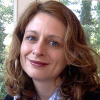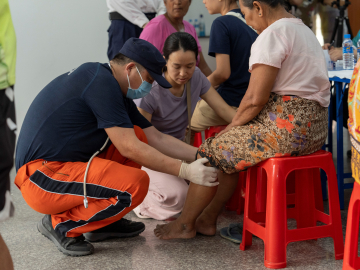Exclusive Commentary: Post-Katrina, the Plague of Disaster Capitalism
When Katrina’s floodwaters inundated New Orleans in 2005, the odds seemed stacked against the poor. By hosting its annual meeting here, APHA gave the public health community an opportunity to gauge the recovery process, and think about the preparedness of all of our communities for the next disaster.
In a stirring session that explored how Katrina impacted health and human rights, panelists Sandra Stokes, vice president of the Louisiana Landmark Society, K. Brad Ott, director of Advocates for Louisiana Public Healthcare, and Janet Hays, a community activist and justice advocate, explained how the storm led to the closure of Charity Hospital, which the city’s poor and underserved populations depended upon.
Charity, one of the few places where the city’s mentally ill people could find treatment, experienced storm damage and was closed … but in a cruel twist, it didn’t have to close, argued Stokes. Rather, state government officials seized an opportunity to leverage post-storm support to raise funds for a new hospital—a bid that would also displace neighborhoods rebuilt after the storm and smacked of a coordinated effort to drive out the poor, and bring in the rich, the panelists argued. It’s called “disaster capitalism.” (If you want to learn more, Ott enthusiastically recommends the film Big Charity.)
Wrapped up in the politics is a dilemma that faces many communities—the lack of treatment facilities for the mentally ill. Citing data in The Shortage of Hospital Beds for Mentally Ill Persons, Hays explains that in 1955 there were 340 public psychiatric beds available per 100,000 U.S. citizens … a number that plummeted to a staggering 17 beds per 100,000 persons by 2005, when Katrina hit. Within that reality, many mentally ill people wind up isolated in jails and prisons.
These are questions that transcend post-Katrina Louisiana. “We as public health professional sometimes limit ourselves to questions about the right to health, but for some issues also involve civil and political rights—and we need to be engaged and exercise our voice in that process,” said Dabney Evans, panel moderator and executive director of the Emory University Institute of Human Rights.
—Dayna Kerecman Myers is Associate Editor of Global Health NOW.




